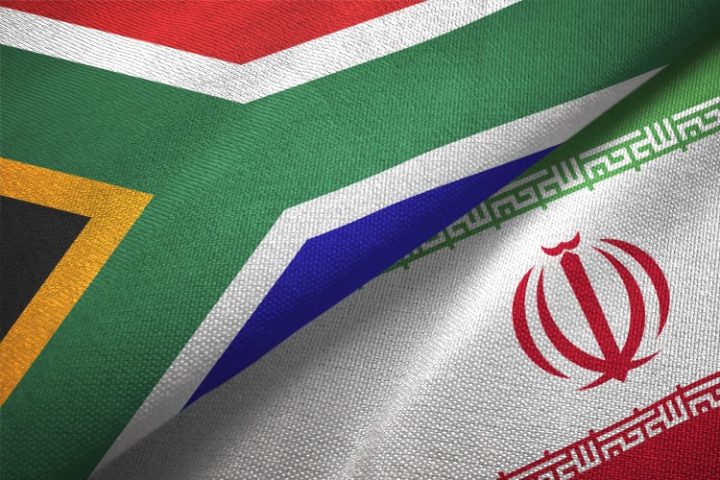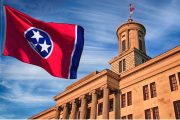
The New Development Bank (NDB) established by the BRICS group of major emerging countries needs to ramp up local currency fundraising and lending in wake of Western sanctions against founding shareholder Russia, the South African Finance Ministry told Reuters.
The ministry’s statement came as South Africa is preparing to host a summit of BRICS leaders in Johannesburg later this month. Finance Minister Enoch Godongwana said that expanding local currency use among NDB members will be discussed during the summit, with the goal of minimizing the effects of foreign-exchange fluctuations instead of de-dollarization.
“Most countries that are members of the NDB have been encouraging [it] to provide loans in local currencies,” Godongwana told Reuters. “[It is] not doing as much as member countries require, but that is the strategic direction we are pushing the bank [in],” the minister continued.
Brazil, Russia, India, China, and South Africa set up the NDB in 2014 to supply funding for infrastructure and sustainable development projects. The bank formally opened for business in 2015, with Bangladesh, the United Arab Emirates, Egypt, and Uruguay joining it. Moreover, Saudi Arabia is in discussions to become a member.
NDB Chief Financial Officer Leslie Maasdorp told Reuters that the bank aims to raise local currency lending from about 22 percent to 30 percent by 2026. Nonetheless, he highlighted that de-dollarization has its limits.
“The bank’s operating currency is dollars for a very specific reason: US dollars are where the largest pools of liquidity are,” Maasdorp explained. The bank responds to its customers and would determine the mix of currencies it uses based on their demands, he elaborated.
Quoting the NDB’s April investor presentation, Reuters reported that the financial institution has so far given the green light to the equivalent of over $30 billion in loans, with two-thirds being in dollars.
Analysts have posited that U.S. sanctions on Russia have emphasized the importance of bolstering the NDB’s local currency fundraising and raising capital from new members to reduce its reliance on U.S. capital markets.
On August 11, the Iranian Mehr news agency reported that South Africa was in favor of Iran joining the BRICS bloc, quoting President Cyril Ramaphosa. Iran is one of more than 20 countries hoping to join the economic bloc.
Ramaphosa articulated his approval of Tehran’s membership bid during talks with Iranian Foreign Minister Hossein Amirabdollahian on August 10 at the 15th meeting of the Joint Commission of the Islamic Republic of Iran and South Africa in Pretoria.
Based on Mehr news reports, “South Africa is interested in Iran being accepted as a member of BRICS as a friendly country,” Ramaphosa said, before adding that Tehran has the “full support of Pretoria Africa in this regard.”
South Africa, which is the present BRICS chair, has also welcomed Iranian President Ebrahim Raisi, as well as leaders from 66 other countries, to the five-nation bloc’s summit later this month in Johannesburg.
Raisi would be attending the August 22-24 gathering, the Iranian minister told Ramaphosa.
Moreover, Amirabdollahian stated that Tehran requested Pretoria’s “strong” support” for its “accelerated membership” in the grouping,
Previously, South African International Relations Minister Naledi Pandor said that increasing BRICS membership would be one of the discussion topics on the summit’s agenda.
With regard to Iran-U.S. ties, Washington would place restrictions on $6 billion in seized Iranian assets set to be released as part of a prisoner-swap agreement, under which Tehran is scheduled to set five detained Americans free in exchange for access to the funds.
White House National Security Council spokesman John Kirby commented on the deal, saying that the United States would monitor where the resources are sent. However, he reiterated that discussions are still ongoing and that “the deal is not done.”
“Essentially, the funds can only be accessed for food, medicine, medical equipment that would not have a dual military use,” Kirby said, adding, “There will be a rigorous process of due diligence and standards applied with input from the US Treasury Department.”
Besides unfreezing billions in Iranian funds, Washington would also release five Iranians currently locked in U.S. prisons, with President Joe Biden supposedly approving the agreement in principle.
According to the White House, the five Americans in custody in Iran are currently under house arrest, with four recently released from Tehran’s Evin Prison. Three of the detainees were identified as Siamak Namazi, Morad Tahbaz, and Emad Shargi, while the others have requested to remain unnamed.
The frozen Iranian assets, which are stored in a restricted account in South Korea, would supposedly be transferred to Qatar for Iran to procure them, based on the deal. Kirby assured that there would be “no impediment” to that transaction, once an agreement is made.
Notably, U.S. Secretary of State Antony Blinken hitherto reiterated that a prisoner swap will not imply sanctions relief for Iran, saying that it would only obtain its “own funds,” and that the assets would only be for “humanitarian purposes.”
Tehran has repeatedly demanded for a stop to U.S. economic penalties increased under President Donald Trump, who withdrew from a 2015 nuclear deal struck between Iran, the United States, and other world powers. Although talks to restart the nuclear pact in exchange for sanctions relief have mainly been put on hold, Kirby said the United States would “welcome” any steps by Iran to ramp down its nuclear efforts.
The upcoming Iranian-U.S. prisoner deal comes in light of escalating hostilities in the Persian Gulf, where Washington has recently called for a slew of military deployments including F-35 fighter jets, a guided-missile destroyer, and other warships. Also, 3,000 American Marines and sailors have been stationed in the region to “deter” Iranian forces, the U.S. Navy revealed, slamming Tehran for “harassment and seizures of merchant vessels.”



